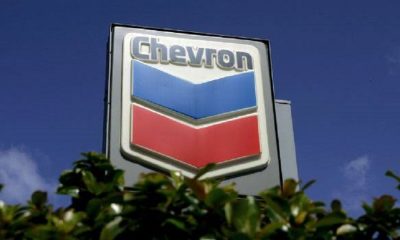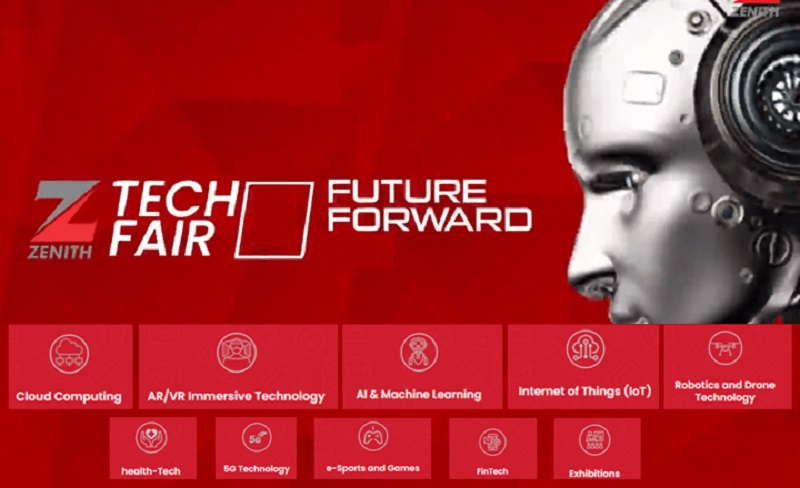General
Full Text of Buhari’s Speech At Africa Business Forum

Protocol
I am delighted to be present here today at the 2nd edition of the United States–Africa Business Forum. I wish to thank the United States Department of Commerce and Bloomberg Philanthropies for organizing this event and for giving me this opportunity to address this august gathering of Political and Business Leaders from the United States of America (USA), Africa and other regions of the World. I believe all of us will take advantage of this Forum to establish and strengthen business relationships; share valuable experience; and collaborate for mutual benefits.
The United States has historically been one of Nigeria’s top trading partners; for decades, the US was the biggest importer of Nigeria’s crude oil. In the last two years, however, the sharp decline in US imports of our crude, on account of rising domestic production of Shale, has altered the trade balance between our two countries. But it has also thrown up opportunities for Nigeria to increase its non-oil exports – especially in agricultural products – to the U.S.
Today, Nigeria enjoys a mutually beneficial trade and investment relations with USA. This relationship has culminated in massive inflow of Foreign Direct Investment into Nigeria. There are several US Companies doing business in Nigeria, including Exxon-Mobil, Chevron, General Electric, IBM, Microsoft, Procter and Gamble, Coca-Cola, Pepsi Company, British-American Tobacco Company, UPS Courier Company, BCG, Johnson Wax Nigeria Ltd, Pfizer Pharmaceuticals, to name a few.
These are no doubt challenging times for the Nigerian economy. But let me use this opportunity to boldly affirm our conviction that there is no crisis without an accompanying opportunity. In our case, we see Nigeria’s ongoing economic challenges – occasioned mainly by the fall in oil prices – as an opportunity to set the economy firmly on the path of true diversification, sustainable economic growth, and shared prosperity.
Since the inception of my Administration in 2015, all efforts have been aimed at ensuring that all Nigerians enjoy rising standards of living. We campaigned for and came into office on the back of three fundamental issues: One, Securing Nigeria from terrorism and banditry, Two, Fighting corruption and ensuring that public funds work for the public good, and Three, Revamping an economy that was dangerously dependent on crude oil, and afflicted by rising inequality and jobless growth. We are pleased to note that our efforts are yielding fruit.
(On Security) – Hundreds of communities and thousands of people have been liberated from the clutches of the terrorists, under our watch, and are now getting a chance to, with support from the government and the international community, rebuild their homes and their lives.
(On corruption) – Our quest is to ensure, through a combination of institution-building and judicial efforts, that public funds work for the public good, and that persons responsible for overseeing the use of these funds come to this task with the utmost sense of transparency and accountability. Earlier this year we signed up to the Open Government Partnership, a clear demonstration of our commitment to a radical departure from a past characterized by large-scale state-enabled corruption. Let me also assure that we will continue to strengthen Government institutions established to address investors’ concerns.
(On the economy) – We are weaning ourselves from a historical dependence on crude oil, diversifying our economy, and putting it on the path of sustainable and inclusive growth. To this end, we have embarked on policies aimed at establishing an open, rules-based and market-oriented economy. We will continue to actively engage with the private sector at the highest levels to listen to your concerns and to assure you of our commitment to creating enabling policies in which your businesses can thrive. Indeed, we have constituted a Presidential Enabling Business Environment Council headed by Vice President Yemi Osinbajo, which is working on a wide range of business environment reforms, ranging from making our planned visa-on-arrival regime a reality, to ports reform, to improving the speed and efficiency of land titling and business registration. We aspire to make Nigeria one of the most attractive places to do business.
Let me now focus on the priority investment sectors for our administration: Infrastructure, Industry, Agriculture, Mining and the Digital Economy.
Infrastructure: For far too long Nigeria has under-invested in the critical infrastructure necessary for a modern economy. Now, that is set to change. We are working hard to bridge an electricity deficit of several thousands of megawatts, which will require substantial private sector investment, especially in Transmission. Our railway system is being opened up after decades of a government monopoly that has hindered the needed private sector investment. We are well on course with a concessioning deal that will see General Electric take over hundreds of kilometers of existing rail assets, and invest billions of dollars to upgrade assets and services.
On Industry, there is the Nigerian Industrial Plan that is being implemented. The implementation is directed at interventions to improve productivity and output in five industry groups, namely: agri-business and agro-allied; solid minerals and metals; oil and gas; construction, and light manufacturing. Currently, investments and partnerships are being directed to leather and leather products; sugar; palm oil processing; food processing, specifically tomato and fruit processing. Automobile assembly and manufacturing are important to the diversification of the Nigerian economy. Industrial zones and parks are being established. This is work in progress.
In Agriculture, through our Agricultural Promotion Policy (APP), we are prioritizing the improvement in domestic production of rice, wheat, maize, fish, dairy milk, soya beans, poultry, fruits and vegetables, and sugar, as well as the export of cowpeas, cocoa, cashew, cassava (starch, chips and ethanol), ginger, sesame, oil palm, fruits and vegetables, beef and cotton. To achieve these goals, we are ready to partner with and support willing private investors, by creating an environment that is stable, safe, and competitive. I am pleased to note that Coca Cola has recently invested substantially in one of Nigeria’s best-known dairy and fruit juice companies, and is looking to increase its stake over the next few years.
In Mining, Nigeria is determined to build a world class minerals and mining ecosystem designed to serve a targeted domestic and export market. To accomplish this, we are prioritizing exploration, local processing and beneficiation of our mineral assets with provision of generous incentives including favorable tax regimes and royalties to investors interested in our market. We have as part of this identified mineral resources, which exist in commercially viable quantities, and designated them as strategic priorities for Nigeria’s domestic Industrialisation and Infrastructure requirements.
In the Digital Economy, which, like Infrastructure, has a multiplier effect that touches every part of the economy, opportunities abound. We have welcomed and continue to welcome investors willing to take a stake in one of the world’s largest and fastest growing telecoms markets – a market which has attracted more than $35 billion in FDI over the last decade and half. The Nigerian Communications Commission will shortly commence a licensing process for the deployment of broadband infrastructure across metropolitan areas in the country.
Young Nigerians are increasingly demonstrating that they have the talent and the passion to leverage the digital economy for solving our most pressing challenges. We are seeing a lot of activity in that space, and not just in Lagos, but even in cities further afield, from Uyo to Abuja. There are currently 150 million active mobile phone lines in the country – sixty percent of which are connected to the Internet. I can confidently say that Nigeria is in the early stages of a domestic technology revolution, and the government is paying serious attention and offering its full support.
Three weeks ago, I hosted Mark Zuckerberg, the Founder and CEO of Facebook, which is now used regularly by 17 million Nigerians, more people than in any other country in Africa. A few months ago Mr Zuckerberg invested $24 million in Andela, a technology company that has Iyin Aboyeji, a 25-year-old Nigerian as one of its co-founders, and maintains its main campus in the city of Lagos. On the same day that Mr Zuckerberg visited I also welcomed and interacted with 30 of the most exciting technology startups in the country; among whom lie tomorrow’s billion-dollar corporations.
In terms of Trade, Nigeria is keen to more effectively leverage the African Growth and Opportunity Act (AGOA) opportunities to boost exports to the US Market. In collaboration with the United Nations Economic Commission for Africa (UNECA) we have developed an AGOA Response Strategy to boost exports under AGOA. We are willing to collaborate with willing development partners to address some of the constraints to accessing the US Market under AGOA, such as our inability to comply with US requirements. With our U.S. counterparts, we are also working on a post-AGOA framework. Nigeria will continue to work closely with the U.S. to ensure that trade works for development.
I urge the American businesses present here to take advantage of the investment opportunity that Nigeria represents. Nigeria remains the number one investment destination in Africa, with total FDI inflow of about US$3.64 billion in 2015. Apart from our domestic market of 170 million, the largest in Africa, we are also the main gateway to a combined West African consumer market that is about as large as ours. With a median age of 19, and with 70 percent of the population below the age of 35, Nigeria’s greatest potential lies in the talent and energy of her youth.
Your Excellencies, Distinguished Ladies and Gentlemen, we recognize that the economic benefits of our trade and investment relations with the United States and other partners are unambiguous. In order to encourage private capital inflow, we have packaged some fiscal investment incentives which include the following: up to 5 years of tax holiday for activities classified as ‘pioneer’; Tax-free operations; no restrictions on expatriate quotas in Free Trade Zones; Capital Allowances (Agriculture, Manufacturing and Engineering); a low VAT regime of 5 percent; among others.
Let me use this occasion to announce the commencement of the latest in a series of bilateral engagements between the United States and Nigeria: the U.S. Nigeria Commercial and Investment Dialogue. This Dialogue, which will focus on Infrastructure, Agriculture, the Digital Economy, Investment and Regulatory Reform, will be jointly led by the Nigerian Minister of Industry, Trade and Investment, and the US Commerce Secretary, and will include business executives from both countries. By strengthening existing trade and investment ties between our two countries, as well as opening up new vistas, it will complement the work currently being done by the US-Nigeria Binational Commission, the US-Nigeria Trade and Investment Framework, and similar initiatives. We very much look forward to the mutual benefits that will accrue from this Dialogue.
On this note, I enjoin investors here today to take advantage of this Forum to build synergies that would translate to increased trade and investment flows between Nigeria and United States of America. Nigeria welcomes you.
I wish you a fruitful deliberation. Thank You for listening.
General
Violence Mars APC Ward Congress in Oluyole
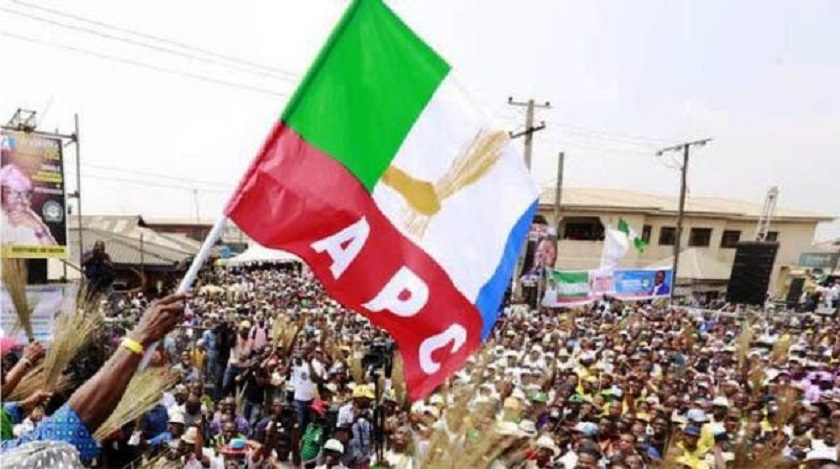
By Modupe Gbadeyanka
The ward congress of the All Progressives Congress (APC) in Oluyole Local Government Area of Oyo State on Saturday left several party members injured after a violence clash erupted.
According to reports, one of the injured persons was Mr Idowu Oyawale, who served as the campaign Director General of a House of Representatives member in the last general elections, Ms Tolulope Akande-Sadipe.
It was disclosed that he sustained severe injuries during the exercise and is currently receiving treatment at an undisclosed hospital.
The ward congress was organised by the ruling party to elect ward executives across the local government’s wards.
However, it was disrupted at Olomi Ward 7 by suspected heavily-armed political thugs allegedly linked to a member of the party.
It was claimed that the thugs invaded the congress venue at Olomi Basic School 1, dispersing party members and officials supervising the exercise, with stones, clubs and other weapons.
Eyewitnesses said tensions escalated unprovoked over delegates’ lists and ward executive positions. The disagreement reportedly degenerated into physical altercations before the violent attacks on some party members.
It was learnt that security operatives led a tactical team to restore order, peace, and disperse the attackers.
Reacting to the incident, some party leaders and elders condemned the violence, describing it as unfortunate and capable of undermining the credibility of the internal democratic process.
The leaders have called on party chieftains and President Bola Tinubu to immediately order an investigation into the violent attacks.
General
A Call For United African Front on Slavery and Reparations
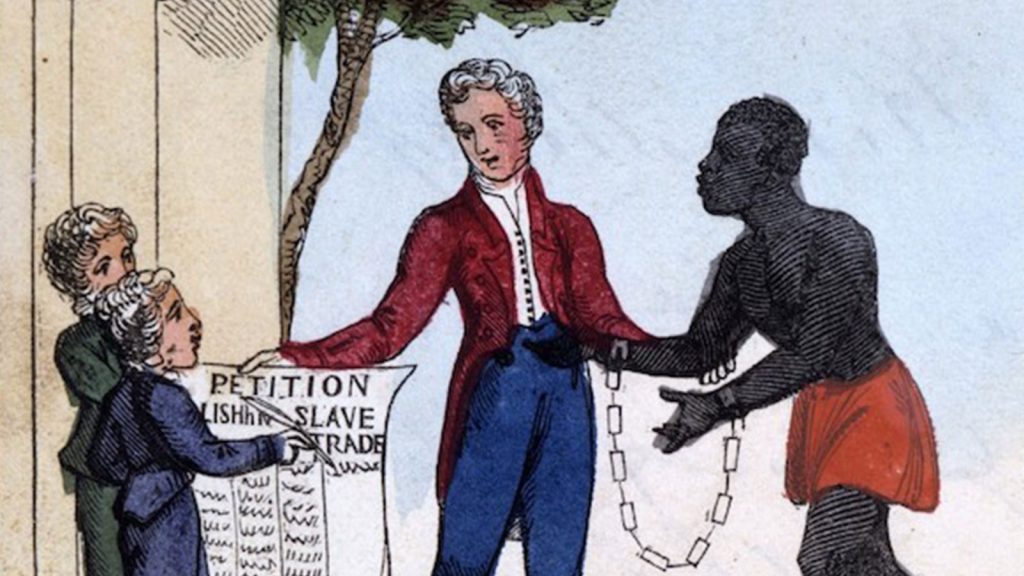
By Princess Yanney
One message stood out; one particular briefing gave clarity and hope for better days ahead. Africa will be heard; willingly or unwillingly, and the resolution thereof will no longer be a hope for years to come, but a reality to actualise. At a press conference during the 39th AU Summit in Addis Ababa, Ghana’s President John Dramani Mahama urged African leaders to adopt a common continental strategy on the legacy of slavery and racialised chattel enslavement, which he described as “the gravest crime against humanity.”
In this context, one must understand; Reparations matter because colonialism was not simply an episode of foreign rule. It was an economic system. African land was seized, labour was coerced, institutions were reshaped to serve external interests, and entire economies were redesigned around the export of raw materials.
Long before independence, the transatlantic slave trade had already stripped the continent of people, skills and social stability, creating permanent demographic and developmental damage. Colonial rule then consolidated this destruction into a durable global structure of inequality.
President Mahama explained that Ghana’s proposed AU resolution, which received broad support from member states, was carefully drafted with extensive consultations involving the AU Committee of Experts on Reparations, legal experts, academic institutions and diaspora organisations. He said the resolution’s wording was deliberately chosen to reflect historical accuracy, legal credibility, and moral clarity.
“Ghana has undertaken extensive consultations to strengthen the resolution. We’ve engaged with UNESCO, the Global Group of Experts on Reparations, the Pan-African Lawyers Union, academic institutions, the African Union Committee of Experts on Reparations and the African Union Legal Experts Reference Group. We hosted the inaugural joint meeting of the African Union Committee of Experts on Reparations and the African Union Legal Experts Reference Group in Accra earlier this month to further refine the text of the resolution. We also began engagement with the diaspora at the Ghana Diaspora Summit held in December last year.”
Hence, come March 25, the resolution will be presented by one man, who will echo the voice of millions of African people and people of African descent. Because truly, a united Africa demanding reparations is not an Africa asking to be included in an unequal system, but rather, an Africa asserting its right to help redesign it. President Mahama stressed that the initiative goes beyond symbolism, providing a legal and moral foundation for reparatory justice and sustained engagement with the global community. The resolution is designed to facilitate dialogue with the United Nations and international partners while affirming Africa’s demand for recognition and accountability for centuries of exploitation and injustice.
“Informal consultations on the draft text are expected to take place between 23rd February and 12th March 2026. Our objective is simple: to build a broad consensus behind this resolution. The initiative is not directed at any nation; it is directed towards truth, recognition and reconciliation.”
He reiterated. Truth is, a united Africa is a strong global force that cannot be stopped or interrupted. But a divided Africa is an Africa liable to imperialism and Western domination. It is therefore a priority for all African people to join hands and stand together to ensure the aims of these resolutions are achieved.
“We call upon all member states to support and co-sponsor this resolution. The adoption of this resolution will not erase history, but it will acknowledge it. The trafficking in enslaved Africans and racialised chattel enslavement were foundational crimes that have shaped the modern world, and their consequences continue to manifest in structural inequality, racial discrimination and economic disparity.
Recognition is not about division; it is about moral courage. Adoption of the resolution will not be the end. Following the adoption, Ghana will continue engagement with the United Nations Secretary General, the African Union Commission, relevant UN bodies and interested member states,” said John Dramani Mahama as he called for unity.
The importance of today’s reparations consensus lies in its recognition that Africa’s underdevelopment is not an internal failure to be corrected through aid, reforms or external advice. It is the historical and continuing outcome of dispossession. Reparations, therefore, respond to a concrete injury, not an abstract moral wrong. Again, Reparations matter because colonialism was not simply an episode of foreign rule. It was an economic system. African land was seized, labour was coerced, institutions were reshaped to serve external interests, and entire economies were redesigned around the export of raw materials.
Long before independence, the transatlantic slave trade had already stripped the continent of people, skills and social stability, creating permanent demographic and developmental damage. Colonial rule then consolidated this destruction into a durable global structure of inequality. Which is why today’s fight, today’s struggle, is of utmost importance. It is a correction of a historical inhumane error. One that has to be amended and corrected, beginning with recognition.
“This is about a sustained dialogue on reparatory justice and healing. Distinguished ladies and gentlemen, this initiative presents us with a historic opportunity, an opportunity to affirm the truth of our history, an opportunity to recognise the gravest injustice in human history, and an opportunity to lay a stronger foundation for genuine reconciliation and equality. While the past cannot be undone, it can be acknowledged, and acknowledgement is the first step towards justice.” – John Dramani Mahama expressed to the media and all who were gathered to witness the briefing under the theme, “Ancestral Debt, Modern Justice: Africa’s United Case For Reparations”.
General
APC’s Maikalangu Wins Abuja Municipal Area Council Election
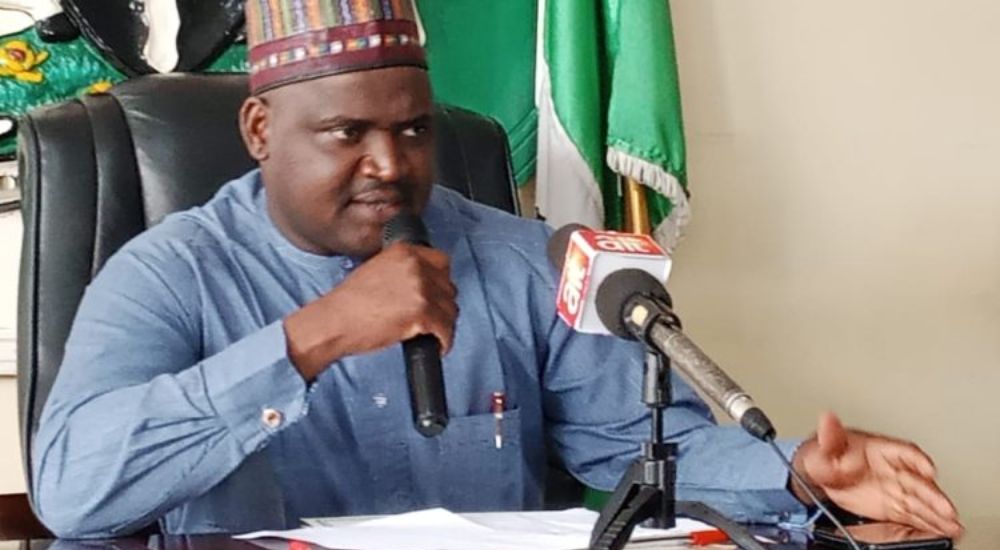
By Adedapo Adesanya
The Independent National Electoral Commission (INEC) has announced the candidate of the All Progressives Congress (APC), Mr Christopher Maikalangu, as the winner of the Abuja Municipal Area Council (AMAC) election, held on Saturday.
The results for the keenly observed municipal chairmanship poll were announced at the INEC area office in Karu at about 4:30 a.m on Sunday.
The Collation Officer for AMAC, Mr Andrew Abue, said that Mr Maikalangu, who is the incumbent AMAC chairman, was returned elected, having scored the highest number of votes cast, 40,295 out of the total number of valid votes of 62,861 in the election.
“That Maikalangu of the APC, having certified the requirements of the law, is hereby declared the winner and is returned elected,” he declared.
Mr Abue stated that the African Democratic Congress (ADC) came second with 12,109 votes, while the Peoples Democratic Party (PDP) polled 3,398 votes.
According to him, a professor, the rejected votes were 2,336, and the total valid votes were 62,861, while the total votes cast were 65,197.
He added that the number of registered voters in AMAC was 837,338, while the total number of accredited voters was 65,676.
According to him, the scores of the political parties and their candidates that contested the AMAC chairmanship election are:
Agbon Vaniah of the Accord (A) – 403 votes
Nemiebika Tamunomiesam of the Action Alliance (AA) – 108 votes
Paul Ogidi of African Democratic Congress (ADC) – 12,109 votes
Richard Elizabeth of the Action Democratic Party (ADP) – 588 votes
Christopher Maikalangu of the All Progressives Congress (APC) – 40,295 votes
Eze Chukwu of the All Progressives Grand Alliance (APGA) – 1,111 votes
Chukwu Promise of the Allied Peoples Movement (APM) – 122 votes
Ugoh Michael of the Action Peoples Party(APP) – 32 votes
Thomas Happiness of the Boot Party (BP) – 43 votes
Jibrin Alhassan of the New Nigeria Peoples Party (NNPP) – 1,694 votes
Samson Usani of the National Rescue Movement (NRM) – 73 votes
Dantani Zanda of the Peoples Democratic Party (PDP) – 3,398 votes
Iber Shimakaha of the Peoples Redemption Party (PRP) – 90 votes
Simon Obinna of the Social Democratic Party (SDP) – 2,185 votes
Madaki Robert of the Young Progressives Party (YPP) – 421 votes
Swani Buba of the Zenith Labour Party (ZLP) – 189 votes.
-

 Feature/OPED6 years ago
Feature/OPED6 years agoDavos was Different this year
-
Travel/Tourism10 years ago
Lagos Seals Western Lodge Hotel In Ikorodu
-

 Showbiz3 years ago
Showbiz3 years agoEstranged Lover Releases Videos of Empress Njamah Bathing
-

 Banking8 years ago
Banking8 years agoSort Codes of GTBank Branches in Nigeria
-

 Economy3 years ago
Economy3 years agoSubsidy Removal: CNG at N130 Per Litre Cheaper Than Petrol—IPMAN
-

 Banking3 years ago
Banking3 years agoSort Codes of UBA Branches in Nigeria
-

 Banking3 years ago
Banking3 years agoFirst Bank Announces Planned Downtime
-

 Sports3 years ago
Sports3 years agoHighest Paid Nigerian Footballer – How Much Do Nigerian Footballers Earn


